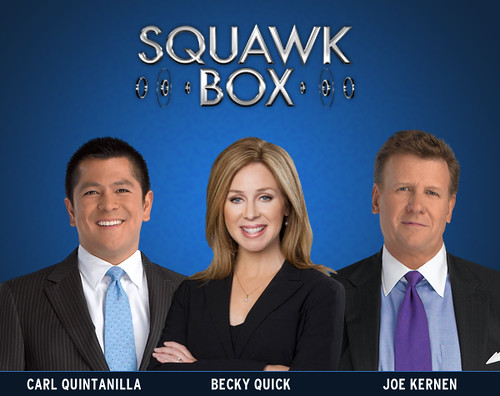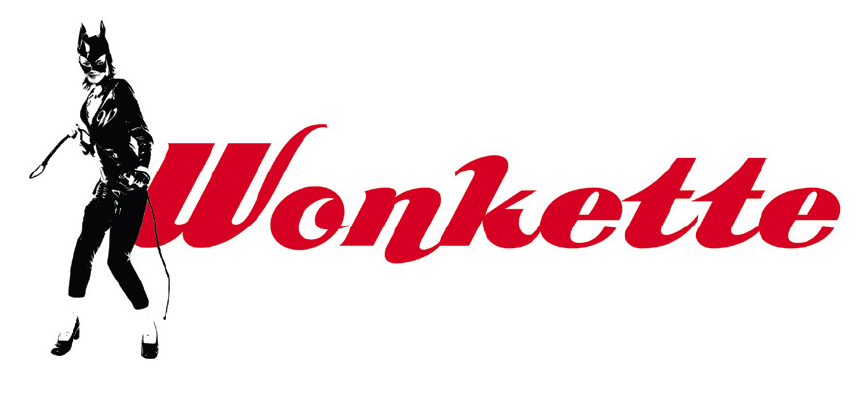Mickey gets the Measles
As a parent, keeping my children safe from unnecessary (and previously eradicated) diseases is my responsibility. Helping to keep other children safe is almost as important. There is a measles outbreak this year that is connected to an exposure at Disneyland that occurred in December. I have followed this measles outbreak and the coverage of it for the last few weeks. As of today’s date, the number of patients who have contracted measles from visiting Disneyland or from exposure to Disneyland visitors has risen to approximately 100 cases and is spreading across the country. The articles I have linked, below, were from a few weeks ago when the measles outbreak was breaking news.
I had the biggest reaction to the CBS reporting of the story, because I was so surprised at the obvious bias presented in the article, even though there was no indication that it would be an opinion piece. The Huffpo article, by contrast, didn’t have the bias I expected. The other pieces, as commentary and satire, made no attempt at and gave no indication of presenting balanced news; that is not their intent.
“Reputable News Sources”
I expected this article to be more “straight news.” My perception of CBS is that it is one of the nightly news channels; naively, I believed that it was going to present the article as an information news piece, not as a biased piece with an agenda. However, the angle is clear. The writer is clearly blaming the measles outbreak on the anti-vax movement. However, let me be clear: the fact that CBS is clearly biased in this article is not a negative
criticism. Too often our current media believes that every side has to
be presented in order to be valid; therefore, we end up with a
legitimization of an argument that is nonsensical (the earth is only
6000 years old, for example) or dangerous (vaccines are bad; climate
change is a myth). CBS is showing responsible journalism, in my opinion.
My surprise came because I expected them to validate the other side,
and they didn't.
Below are several instances I found of clear bias or of an angle; however, the working definition of “ideology” from Machin and Mayr doesn’t seem to be a factor in these articles. The measles outbreak is not inherently an issue dealing with power, or the imbalance of power. There is a socioeconomic issue at play here, in that the parents who choose not to vaccinate tend to be wealthier and clustered in wealthy areas (and obviously must have a certain lifestyle in order to be able to afford to go to Disneyland), but these specific articles are not written from that power position and therefore the ideology as pertains to power doesn’t seem to apply. [Or am I just missing it because I have a strong personal belief related to this issue? Spoiler alert: I firmly believe that vaccinations are based in years of medical research, they are backed by science, they have saved countless lives, and if they are used properly, within the medically approved timelines, they build herd immunity, which protects all of us from unnecessary crippling and debilitating illness and devastating loss. So...am I missing the power-based ideology because I agree with it?]
Below are several instances I found of clear bias or of an angle; however, the working definition of “ideology” from Machin and Mayr doesn’t seem to be a factor in these articles. The measles outbreak is not inherently an issue dealing with power, or the imbalance of power. There is a socioeconomic issue at play here, in that the parents who choose not to vaccinate tend to be wealthier and clustered in wealthy areas (and obviously must have a certain lifestyle in order to be able to afford to go to Disneyland), but these specific articles are not written from that power position and therefore the ideology as pertains to power doesn’t seem to apply. [Or am I just missing it because I have a strong personal belief related to this issue? Spoiler alert: I firmly believe that vaccinations are based in years of medical research, they are backed by science, they have saved countless lives, and if they are used properly, within the medically approved timelines, they build herd immunity, which protects all of us from unnecessary crippling and debilitating illness and devastating loss. So...am I missing the power-based ideology because I agree with it?]
Because I am an English teacher and close reading is what I teach, I tackled these articles through a close reading methodology, looking at the imagery, diction, and syntax.
- Visual Image--leading with a picture of the vaccine shows a clear angle into the story. Caption below the image: “Doctors say the MMR (measles-mumps-rubella) vaccine is safe and can prevent serious childhood illnesses” in case the angle wasn’t completely clear.
- Syntax--first short sentence in the piece: “Most of the patients had not been vaccinated” underscores the vaccine angle.
- Diction--”That worrisome development” discussing the spread of measles beyond the park exposure heightens the concern, in contrast to the “agency” [but which agency? So far the article has mentioned California Department of Public Health, Officials in Utah, and Disney, so it’s unclear which “agency” said the following] which was more matter-of-fact: "indicates exposure to measles is more widespread throughout the county," and "the measles outbreak will continue to spread." The Center for Disease Control and Prevention is mentioned two paragraphs down, so is THAT the agency?
- Diction: “mental retardation” found in this sentence --”Most patients recover, but some can develop serious complications or even die. The CDC says one out of every 20 children with measles will get pneumonia, and one out of 1,000 will develop encephalitis, or swelling of the brain, which can lead to convulsions and leave the child deaf or with mental retardation.” I have to question here: is “mental retardation” a term that is meant to sound medical, or is it meant to frighten? I thought that this terminology was viewed as derogatory in our culture today. Using a word laden with such weighty negative connotation is meant to frighten and even repulse the reader.
- Imagery: “just a plane ride away” found here--"This outbreak is a reminder that measles is just a plane ride away from the United States," the California Department of Public Health noted. The image of “just a plane ride away” makes the measles very very close to us.
- Diction: “parents refusing” found here--”Nationwide, the measles vaccination rate is over 90 percent, but some communities -- including Orange County and other parts of California -- have seen an increase in parents refusing vaccination for their children.” with a link to an earlier CBS news article. Parents refusing is an interesting choice versus the idea of parents “choosing a vaccination free home” or some other choice of words.
- Diction: “many cases” is an unclear number. How many cases are linked to the anti-vax movement? The final paragraph: California had its worst measles outbreak in decades last year, and many cases were linked to families who opted out of having their children vaccinated. Overall the U.S. had 644 confirmed cases of measles in 2014, the most in 20 years.” A lack of concise numbers relating how many are linked to the anti-movement shows the bias.
In contrast, since this was from Huffington Post, I expected more bias and commentary. Huffpo is commonly believed to be one of the “liberal left” media sources. Since the “liberal left” also tends to support science-based explanations (like global warming and evolution), I expected this article to be full of language communicating a heavy belief in the need for vaccinations. However, I was surprised to find that this article seemed to present the facts concisely, without any bias that I could perceive.
- On a diction level, the verbs used tend to be matters of statement or thought and do not convey emotion or fear: “confirmed, conclude, may have been exposed, include.”
- Syntactically, The shortest sentence (and the only 1-sentence paragraph in the piece) stated: “Many were not vaccinated against the disease” This is a statement of truth, although the actual numbers are not presented. As in the CBS article, a lack of concrete numbers allows for interpretive bias.
- Tone: There were no references to parents in this article, only patients, which removes the ability to blame the parents, and instead treats it as a medical issue. The article did present this as an “outbreak” but that is in fact what it is. Calling it an outbreak is less strident than calling it an “epidemic,” for instance.
- This article seemed factual, straightforward, without ambiguity, and without an underlying sense of blame or fearmongering.
Video coverage:
The text on the video says: “Squawkbox takes a stand,” so the audience is informed from the get-go that this is an opinion piece.
- Tone, allusion, word choice: The woman starts the piece by conversationally saying, “You know my Howard Hughes-like fear of germs and skeeviness” allowing us to commiserate with her (we know her tendencies), giggle a bit at her self-depreciation (Howard Hughes? You’re so silly, lady), and also fear germs right along with her (I mean, who doesn’t fear skeeviness?!)
- Imagery: While she is giving the background of the measles outbreak, the video coverage is of Disneyland...first an aerial view of the park, empty, looking almost surreal, with no rides going and no obvious people present. Feels like a post-apocalyptic setting or view, where Disneyland is vacant...and then it cuts to Mickey and friends, dancing during a parade. As the characters dance while she’s talking about the facts and repercussions of measles, it’s almost like the characters are rejoicing, “Measles, Measles, Let’s get the Measles!” These video clips underscore the speaker’s presentation that this epidemic is scary and this situation is ridiculous.
- Non-verbal communication: She clears her throat, “ahem” before a statement; this underscores her distaste for the subject at hand.
- Other speakers: At a different point, she says the virus stays airborne for 2 hours and you breathe it in and another speaker echoes, “breathe it in?” which adds a layer of scariness, repeating (in a breathless manner) how contagious this disease is.
- POV: She closes by making a declarative statement: “If you get your shots, you will not get this disease.” This is a half-truth (there is a slight chance of getting the measles, even if you are vaccinated; also, vaccinations wear off over time and boosters are needed). In addition, the switch to 2nd person here, “If YOU get YOUR shots, YOU will not get this disease” is really interesting. Usually this is portrayed as something children get, but children would not be watching CNBC. So to turn this into a direct address (2nd person is usually only used for confrontations or commands), it forces the audience to take ownership.
A blog:
from Wonkette:
Seriously. Best. Writing. EVAR.
Okay, obviously this is a blog, and it’s satire, and it’s completely full of every bit of bias imaginable. Satire works to heighten awareness of timely social and political issues that need to be changed through the use of humor, confrontational language and descriptions that make the audience squirm; satire usually employs heightened irony and sarcasm. Wonkette leans toward optimistic satire (which most modern American satirists profess) as opposed to misanthropic satire, in that they point out the stupidity of mankind but also point out that the situation is fixable, if only the stupid people would stop being so stupid.
The title of the blog post: “Terrible Elite Westside Jerks Now Giving Mickey Mouse Measles” and the accompanying picture of a bespeckled Mickey Mouse set up the entire premise of the rest of the piece, juxtaposing the rich “elite” against the innocent Mickey Mouse, and describing the “elite” as “terrible” and “jerks.” The word “now” lets us know that these terrible rich people have done other terrible things before, but NOW they’re attacking innocence. The picture of polka-dotted Mickey Mouse looming over the polka-dotted hair bow on the head next to him adds the idea of small children being affected/infected.
The interesting thing about Wonkette is that it is full of real news and real reporting: the links to articles related to schools’ vaccination requirements, links to investigative journalism by Time Magazine, links to the CDC, and links to their own satire pieces on related topics adds relevance and factual information to support their premise and inform the reader. Statements such as: “Hmm. This isn’t an Advanced Math Blog, but sources close to yr Wonkette can confirm an 8% unvaccinated class of kindergarteners is a bunch of dangerous bullshit” as a standalone statement would be simply inflammatory and without merit, but this statement follows a CDC statement related to herd immunity. The chatty tone of the words “hmmmm” and “yr Wonkette” allows the author to imply, “well, we don’t know much and we’re not super smart, but look, here’s some info from the CDC and they are pretty legit.” Finally in this statement, to refer to kindergarteners as “a bunch of dangerous bullshit” is once again underscoring the idea of innocence and the threat that is present; even the profanity adds meaning as it makes the audience squirm at the word “bullshit” in such proximity to “kindergartener.”
The Wonkette piece is long and would take pages to unpack; however, the skill of the satire and the obviousness of the stance remain: Innocent lives are at risk because people are stupid.
I’m still struggling with wrapping my head around the definition of ideology as relating to power and discourse; in the political realm I can easily see this, but in terms of these articles and posts related to the measles, I am struggling to see how power is shaping the discourse. I tend to think of power in terms of socioeconomic status and political power: the “man” keeping the people down. Wonkette always push back AT those in power; I had not considered that they held the power. Is the “power of the pen” enough to establish ideology?
One possible explanation/interpretation is that the science-based stance (the pro-vaxxers, in this situation) are the people in power. The medical community (aligned with the media, and the government, and the pharmaceutical companies) presents a powerful argument to vaccinate. This, then, could be the ideology: the belief that vaccines are good; those who oppose the vaccines are portrayed as dangerous and stupid and selfish.
It is not often that I side with the “man”...but as a parent who would prefer my children to not contract the measles, or smallpox, or polio, or chicken pox, or Hepatitis...I would be negligent (and dangerous and stupid and selfish) to do anything BUT insist that vaccinations save lives.




